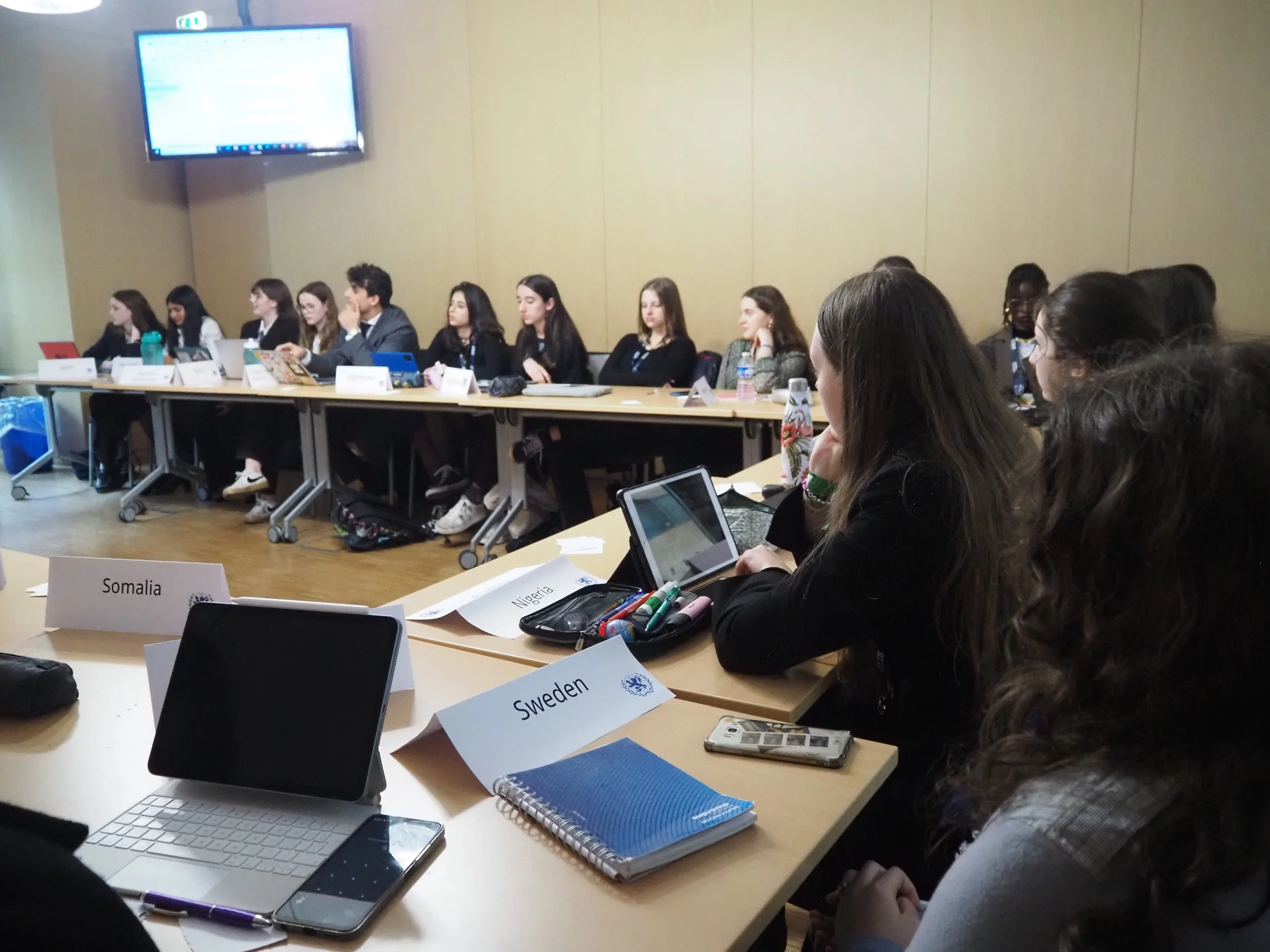The OHCHR and UN Women committees at ILYMUN 2025
Written by: Nathalie Devillers
INTRODUCTION
The different committees at the conference play a crucial role in shaping policies and advocating for fundamental rights across the world. Two significant committees this year were the Office of the High Commissioner for Human Rights (OHCHR) and UN Women. UN women worked on gender equality and what to do to achieve that. OHCHR on the other hand, focused on the protection and promotion of human rights.
OHCHR
OHCHR Delegates Lobbying – Credits: ILYMUN Press
The OHCHR committee is dedicated to ensuring free and fair elections worldwide, as well as showing and emphasizing the importance of minority groups. During the discussions topics such as voting rights, political representation and historical struggles were addressed. The committee highlighted the importance of equal voting opportunities regardless of factors such as race and gender.
One of the major issues brought up during the debate was the suppression of culture and specifically, how it leads to societal tensions. Several resolutions were proposed which encouraged cohesion through inclusivity. The debate also covered issues like clearly distinguishing full citizens to residents, to properly safeguard the democratic principles. A key resolution recommended was that all countries ensured electoral integrity by guaranteeing free, fair and transparent elections. However many real world challenges were brought up into the debates – for example, rigged elections and other external interferences were recognized as the significant threats they are.
The OHCHR committee further discussed other controversial issues, such as whether individuals who commit crimes against humanity should retain their voting rights or not. All of these points managed to spark intense debates, specifically between the delegations of Russia and Syria. This committee managed to truly illustrate the complexity of implementing human rights in different contexts.
UN WOMEN
UN Women Delegates in session – Credits: ILYMUN Press
The UN women committee focused on obstacles preventing women’s participation in the political and economical fields. A major topic mentioned was the recognition of unpaid work which is not acknowledged into different types of economic measurements like GDP. The conversation highlighted the successes in countries like Norway, which has managed to incorporate unpaid work into said measurements, and was seen as an example for other countries to follow.
Financial vulnerability was another key issue which was heavily discussed during the debate. Delegates mentioned how economic empowerment can strengthen women’s position in society. The role of government policies which support women’s rights was heavily talked about, especially in areas where women are disadvantaged. Delegates mentioned and edited clauses in order to create budget allocations for gender focused initiatives to be brought to life all around the globe, as well as the legalisation of abortion to be a right and necessity.
Education was identified to be an extremely fundamental tool for achieving gender equality. The committee also proposed different measures of quotas for women in leadership. Delegates fought for strengthening government policies to support women in politics and the workforce as a whole. Many delegates also mentioned funding from the UN in order to support all of these points, as well as the creation of many different awareness campaigns to address these issues. Many also mentioned that having women guest speakers in conferences similar to ILYMUN will inspire the youth, and help the creation of more incredibly strong and talented women leaders, like Greta Thunburg.
CONCLUSION
Both the OHCHR and UN women committees play an increasingly important role in shaping policies which promote justice, equality and inclusivity. Both these committees help overcome barriers which seem impossible to surpass. The discussions within these two committees highlighted the necessity for international cooperation to achieve a meaningful change. Debates were fluid and seemed natural for many of the delegates – it is truly an incredible experience to see this generation fight and address harsh topics like these, which help contribute to a more equitable world.



